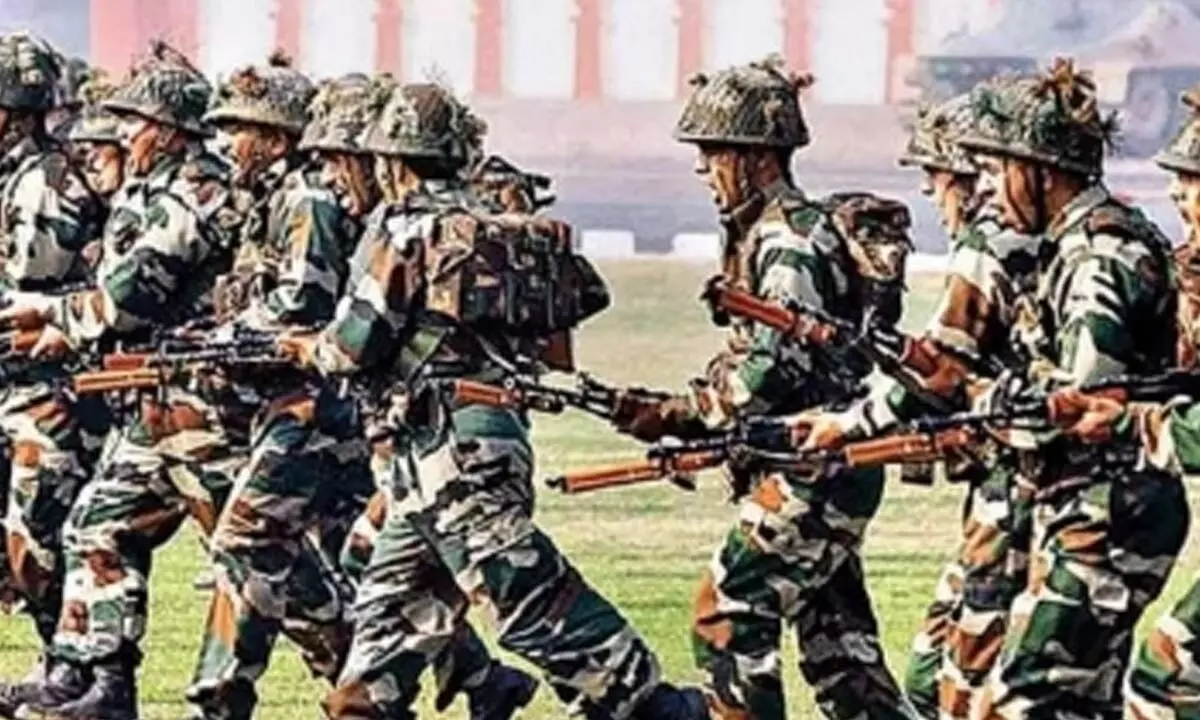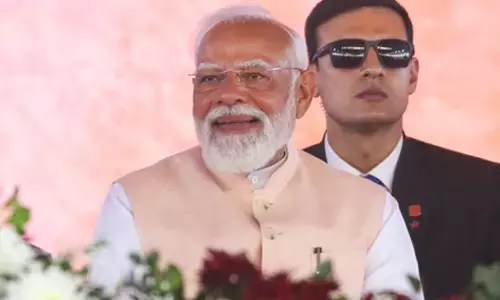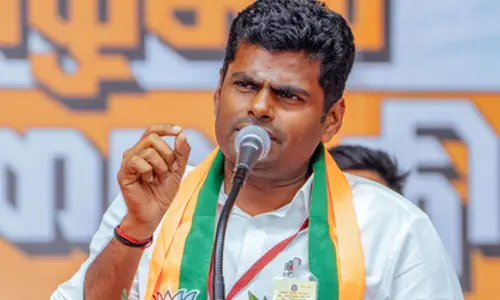Ceasefire: A strategy imperative for peace and unity

India Warns Pakistan Over Ceasefire Violations Along LoC
India, a nation profoundly shaped by Mahatma Gandhi’s doctrine of non-violence, has consistently positioned itself as a beacon of peace in a turbulent world. This ethos, deeply embedded in its cultural and political fabric, has guided India’s approach to international relations and conflict resolution. Yet, the persistent challenge of cross-border terrorism, particularly in the context of the unresolved Jammu and Kashmir dispute, has repeatedly tested this commitment.
The recent ceasefire agreement along the Line of Control (LoC) exemplifies India’s strategic restraint and dedication to peace, even as it navigates complex security threats. At this critical juncture, national unity, rather than political division, is imperative to safeguard India’s sovereignty and foster regional stability.
The origins of the Kashmir conflict lie in the 1947 partition of British India, a tumultuous event that gave birth to Pakistan and left the princely state of Jammu and Kashmir as a contested territory.
The LoC, established after the 1948 Indo-Pak war, remains a de facto boundary, not an internationally recognized border. This volatile line has been a perennial flashpoint, marked by skirmishes, artillery exchanges, and terrorist infiltrations.
Groups like Lashkar-e-Taiba and Jaish-e-Mohammed, operating from Pakistani soil, have orchestrated heinous attacks on Indian territory, including the 2001 Parliament attack, the 2008 Mumbai massacre, and the 2019 Pulwama bombing, which claimed the lives of 40 Indian paramilitary personnel.
India’s response to these provocations has been characterised by a delicate balance of resolve and restraint. Operations such as the 2016 surgical strikes and the 2019 Balakot airstrike targeted terrorist infrastructure in Pakistan-occupied Kashmir (PoK), a region India considers part of its sovereign territory. Notably, India has consistently avoided escalation, responding defensively only when provoked, as seen in the 2019 aerial engagements following Pakistan’s retaliatory strikes.
The Union Government, guided by the strategic expertise of its armed forces, has prioritised transparency, with military officials leading press briefings to provide factual accounts of events, from localised incidents like the Pahalgam skirmishes to the eventual ceasefire agreement.
The recent ceasefire, reinstated in February 2021 and reaffirmed after subsequent violations, is a pragmatic step toward de-escalation. It reflects India’s adherence to the 2003 ceasefire agreement and its broader commitment to minimizing loss of life.
By opting for a ceasefire, India has demonstrated strategic maturity, prioritizing regional stability over short-term political gains. This decision aligns with its historical commitment to non-violence, a legacy championed by Gandhi during the freedom struggle. It also adheres to international frameworks, such as the 1972 Simla Agreement, which mandates bilateral resolution of disputes between India and Pakistan. India’s restraint has garnered international support, with nations like the United States, France, and the United Kingdom acknowledging its responsible conduct in counter-terrorism operations.
For instance, the U.S. State Department’s 2020 Country Reports on Terrorism praised India’s efforts to strengthen regional cooperation against terrorism, while France’s unequivocal support post-Balakot highlighted India’s adherence to international norms.
The Indian government’s handling of the ceasefire underscores the importance of military expertise in national security decisions. The Indian Army, with its deep understanding of the region’s geopolitics and operational realities, has played a pivotal role in shaping the country’s strategy. From advising on the feasibility of targeted strikes to overseeing ceasefire negotiations, the military’s involvement ensures that decisions are grounded in strategic necessity rather than political expediency.
The transparency exhibited by the armed forces, particularly in briefing the public on incidents like the Pahalgam skirmishes, has bolstered public trust. Unlike politically charged narratives, military-led communication focuses on facts, avoiding speculation that could inflame tensions. This approach contrasts sharply with Pakistan’s often contradictory statements, as evidenced by its initial denial of the Balakot airstrike’s impact. In this context, the opposition’s demand for a parliamentary debate on the ceasefire is both untimely and counterproductive. National security decisions, particularly during active conflicts, rely on real-time intelligence and operational secrecy, which public debates risk compromising. The 1962 Sino-Indian War and the 1999 Kargil conflict demonstrated that political unity, not division, is critical during crises. Public discussions, while integral to democratic accountability, can inadvertently signal disunity to adversaries, weakening India’s negotiating position. The government, supported by the military’s expertise, is best equipped to navigate these complexities, as evidenced by its successful management of the 2019 crisis and the subsequent ceasefire.
Moreover, the opposition’s critique overlooks the broader implications of escalation. The ceasefire, far from being a concession, is a strategic choice to avert such outcomes while maintaining pressure on Pakistan to curb terrorism. The nation has demonstrated its resolve to protect its sovereignty, as seen in its revocation of Article 370 in 2019, which integrated Jammu and Kashmir more fully into the Indian Union, and its robust counter-terrorism operations. Yet, these actions are underpinned by a vision of peace, as articulated in India’s support for backchannel talks and confidence-building measures with Pakistan. This moment calls for a unified national response that transcends political divides. Political parties, the civil society, and the media must rally behind the government’s efforts, reinforcing India’s image as a responsible global power.
The international community, including forums like the United Nations, should support India’s call for Pakistan to dismantle terrorist networks, as mandated by UNSC Resolution 1373. Domame, public discourse should focus on strengthening India’s counter-terrorism capabilities, investing in border infrastructure, and supporting the resilience of communities in Jammu and Kashmir.
As the world watches, India’s ability to maintain national unity, pursue diplomatic engagement, and uphold its security interests will shape the future of South Asia.
By embracing this opportunity for peace while remaining vigilant, India can honor its legacy as a nation that resolves conflicts through dialogue and restraint, ensuring a stable and prosperous future for its citizens and the region.
(The writer is a senior Advocate)














